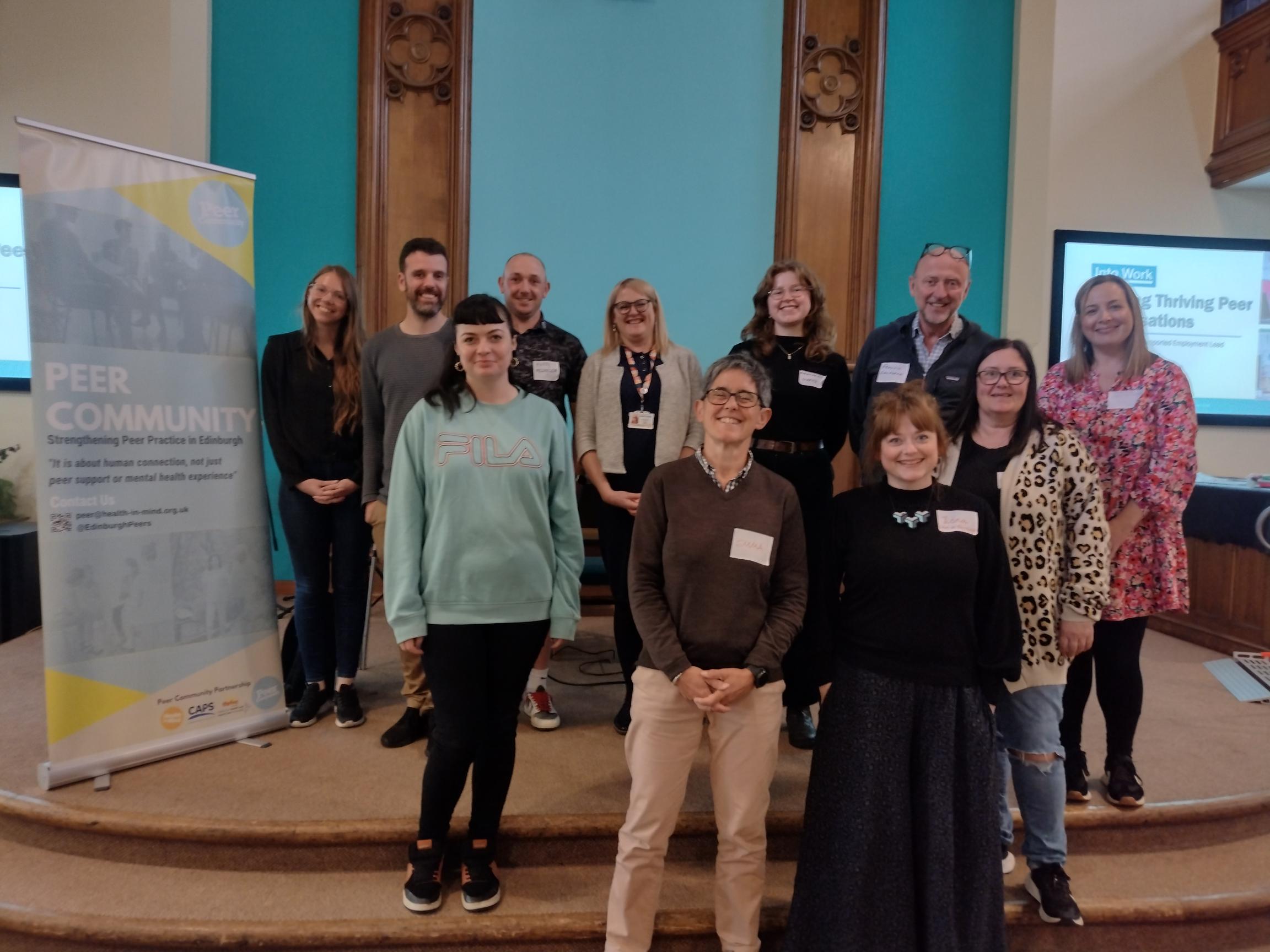Carer Support: Understanding carers lives and rights
Through resources, rights guidance and peer support, Change Mental Health’s Carer Support helps carers find balance, shared by a team member who sees its impact firsthand.

Caring for a loved one with mental illness can be an incredibly demanding and complex journey. Many carers find themselves taking on an overwhelming amount of responsibilities, often putting the needs of the person they care for ahead of their own health and wellbeing.
Carer Support service provided by Change Mental Health has been offering practical and emotional support since the organisation’s beginning, giving carers the tools to take care of themselves and their loved ones.
recognising the importance of carers’ wellbeing
Carers often come to the Carer Support service feeling completely overwhelmed and focused solely on the needs of their loved ones. “Quite often when carers come to our service, they’re not thinking about themselves at all,” Heather Adamson, a Carer Support Worker in Fife with her own experience of being a carer, explains. “They’re looking to see how best they can support the person they’re caring for. But a key part of our role is helping them see just how important they are in the whole machine.”
Carers are encouraged to take a step back and realise that their wellbeing is essential – not only for themselves but for the person they care for. This shift in perspective can be the first step in helping carers recognise their own needs and rights.
As Heather describes, “It’s about walking beside someone, taking those baby steps to introduce them to other support available. It’s terrifying for people to try to figure out where to get help, but having someone there to pick that apart with them means they’re not in it alone.”
Carers are gently guided to see where they might need support and feel reassured that someone is there to help them every step of the way. This guidance is carefully tailored to each carer, recognising that every situation is unique. Heather adds, “There is no one way to deliver support. It is very much dependent on the situation and the carer themselves. I try very hard not to add to the overwhelming nature of the caring role, but instead aim to help demystify and support in a way that works for them.”
giving carers practical support and resources
Carers can feel disconnected from the decision-making process around their loved one’s care, often overwhelmed by the number of professionals involved. With so many professionals involved in their loved one’s care, families often feel further and further pushed out of the information loop.
“Our role is to help them regain their voice, to be heard and valued. They’re the person who knows the person they care about the best.
“Their opinion and their views do count. They have a right to have their views heard and they have a right to be listened to.”
The Carer Support service helps carers understand their rights, including those protected under the Carers (Scotland) Act, which mandates that their views be considered in decisions related to their loved one’s care.
One of the unique resources available to carers is the Time to Live funding, offered through Creative Breaks, which allows carers to apply for up to £500 (amount varies depending on the region) to support their own wellbeing. “Initially, when you tell carers about this funding, they’re hesitant,” Heather explains. “They think, ‘I can’t take time away from the person I’m caring for’ and feel guilty even considering it.” But the funding enables them to reconnect with their own interests, whether it’s through a gym membership, a camera for photography or a short getaway. These small acts of self-care can be transformative, reminding carers that their needs matter too.
A short break from home can enable a carer to reset. As Heather emphasises, “Sometimes, it’s about getting back to basics – helping people rediscover that they are worth taking time for themselves, even just for a walk or a coffee. Those moments help them recharge and stay resilient in their role.”
finding connections in peer support
Isolation is a common experience among carers, especially when caring for someone with a mental illness. Peer support groups, another aspect of Change Mental Health’s Carer Support service, can help alleviate this sense of loneliness. “People think that peer support is just a place to talk about their problems, but it’s so much more,” Heather says. “It’s a safe space to be with others who get it, where you don’t have to explain the weight of it all. You’re with people who already know.” These groups provide a place to share resources, experiences and sometimes simply a laugh – removing the burden of having to constantly explain one’s struggles.
“If you’re trapped in the house and stuck in day-to-day cycle, it can feel like you have to be in there all the time, with no way out. You can’t see opportunities to get a break or take a breather.
“But when someone from Carer Support comes along and says, ‘You are worth it. Let’s just go for a coffee. We’ll go for a walk’, it reminds you that there’s a chance for respite and a chance to feel a little bit of relief.”
Heather Adamson, Carer Support, Fife
Heather describes one carer who found a sense of calm through gardening sessions organised by Grow West Fife, where Change Mental Health has a dedicated patch. “She told me, ‘It’s the perfect place for me. I can do as much or as little as I want and when I leave, I feel like my head is clear. I’m still thinking about the person I’m caring for, but while I’m there I feel recharged.'” This example captures how personalised support helps carers reclaim small parts of themselves that are often lost in the demands of being a carer.
recognising carers’ contributions
Carers play a big part in the lives of those they care for, often stepping in where other services may struggle. They provide insight and stability that can complement the work of health professionals. “It’s really important that services understand just how much carers bring to the table,” Heather explains. “They’re not just family members; they know the person best and they deserve to be part of the decision-making process.” This support role means carers often shoulder responsibilities that deserve recognition and respect.
Heather stresses that carers are essential partners in mental health care and should be valued and included in the process. “It’s often the carers who are there when services fall short,” she says. “They need to know they’re more than just support – they’re partners in care.”
helping carers find balance
Carer Support service helps carers see that, while being a carer may be a big part of their lives, it doesn’t have to be their whole identity. Heather sums up the purpose of the support service: “Our aim is to provide consistent, steady support, equipping carers with the tools to feel more confident and cope with the challenges ahead.” This support helps carers find balance, understand their rights and live a life that includes their own interests and goals.
If you’re a carer or know someone who could benefit from our Carer Support services, please reach out. You’re not alone, and there’s a network of people ready to support you on this journey.
support
Our Advice and Support Service is open Monday to Friday, 10am to 4pm (closed for lunch between 12.30pm and 1.30pm), where advisers can signpost you to local support that most fits your needs, including our Change Mental Health services. We offer initial advice on money worries and help to deal with emergencies.
Contact 0808 8010 515, email us at advice@changemh.org or fill out the enquiry form on the Advice and Support Service page.





